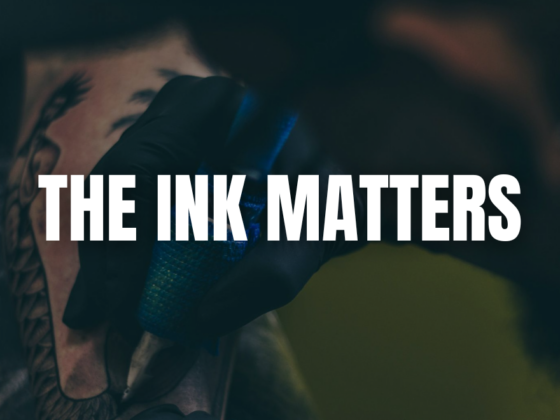Inked Mag Staff
December 6th, 2017
Man with “Do Not Resuscitate” Tattoo Causes a Confusion of Ethics
The Dos And Don’ts of Hidden Message Tattoos What would you do when you read “Do Not Resuscitate” tattooed on someone’s chest, but your job, your mission, is to save…
The Dos And Don’ts of Hidden Message Tattoos

What would you do when you read “Do Not Resuscitate” tattooed on someone’s chest, but your job, your mission, is to save lives?
The exact predicament, Florida doctors faced in an emergency situation at a University of Miami hospital, involving an unconscious 70-year-old man, according to the New England Journal of Medicine’s case study, that was published Thursday, November 30.
The patient, who suffered from various diseases, had a raised alcohol level that caused him to be unconscious. His health history included obstructive pulmonary disease, a disease that affects the blood vessels that leads to- or from the lungs and causes shortness of breath, according to Web MD. As well as diabetes mellitus, a life-threatening disease where the body is unable to produce enough insulin.

Photograph of the Patient’s Tattoo Entered into the Medical Record to Document His Perceived End-of-Life Wishes.
When doctors opened his shirt to resuscitate him, in bold letters it read “Do Not Resuscitate,” which hit them in the face, like a fist to an eye. In disbelief and confusion, especially since his tattooed wish was signed with his presumed signature, they brought in an ethical consultant.
At first, however, they believed to do the right thing, which is to save someone’s life. Since a tattoo that says “Do Not Resuscitate,” is not considered a valid type of document according to the Florida Department of Health, the doctors hesitated to honor it. Even more so, since they had difficulties identifying him and locating his family. Therefore, they gave him antibiotics, as well as intravenous fluid to keep him alive.

After the ethics consultants reviewed the patient’s case, they advised the hospital to honor the wish to not resuscitate. The final document with the DNR request was written and the social work department acquired a copy of his “out-of-hospital” DNR order from the Florida Department of Health, which was persistent with his tattoo.
Throughout the night, the patient’s condition worsened and he died without any further medical treatment.
According to the doctors, “This patient’s tattooed DNR request produced more confusion than clarity, given concerns about its legality and likely unfounded beliefs that tattoos might represent permanent reminders of regretted decisions made while the person was intoxicated. We were relieved to find his written DNR request, especially because a review of the literature identified a case report of a person whose DNR tattoo did not reflect his current wishes.”

Although, it’s difficult for patients to make their end-of-life wishes known, especially elderly and sick. It is also difficult to deter for doctors if the tattoo is the last message of the patient when verbal words fail to reach, or if it was a drunken mistake that was decided impulsively in the moment.
In any case, this medical report neither for nor against tattoos as use to express a person’s last wishes.
I think that a tattoo like this, should be honored, especially if this patient has a legal document stating it is their last wish.

Editor's Picks
Beachside Bombshells
Inked Magazine’s 2024 Cover Girl competition winners strut their beauty and body art beachside.
New Kicks on the Block
Indie Ridge has created a niche riders didn’t know they wanted. And it seems to be catching on.














